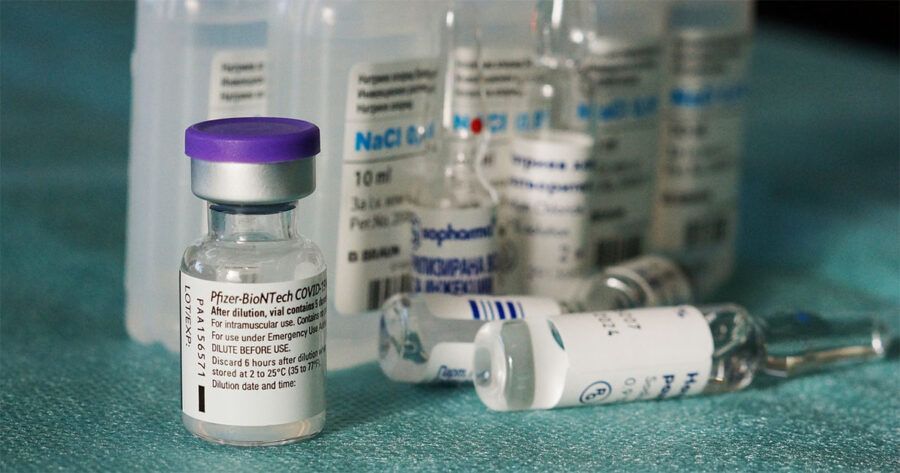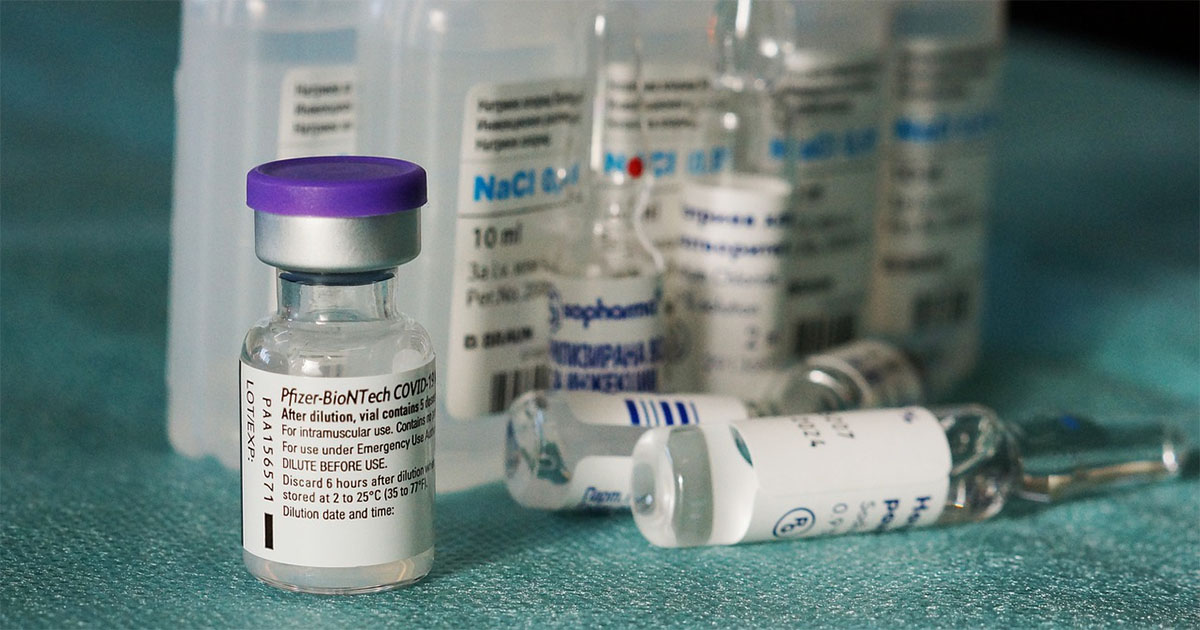
South Africa to Offer Pfizer and J&J Booster Shots Soon, Omicron Not Showing Increased Severity
The South African Department of Health has announced that the first recipients of the Pfizer COVID-19 vaccine booster shot will likely get it in January. The department’s Deputy Director-General, Dr Nicholas Crisp, told the media on Friday morning that the first qualifiers to the booster shot will be eligible on 28 December, but that since […]

The South African Department of Health has announced that the first recipients of the Pfizer COVID-19 vaccine booster shot will likely get it in January.
The department’s Deputy Director-General, Dr Nicholas Crisp, told the media on Friday morning that the first qualifiers to the booster shot will be eligible on 28 December, but that since it’s “a couple of days before New Year’s… we do not envisage introducing a major new programme on New Year’s Day or thereabout.
“So, from January, once the Ministerial Advisory Committee on Vaccines (VMAC) has aligned with this approval, we will get the recommendation and plan the appropriate rollout of boosters at that time,” he said.
This announcement comes after the South African Health Products Authority (SAHPRA) approved the administering of the third dose of the Pfizer COVID-19 vaccine for adults this week.
All adults in South Africa are now eligible for an additional shot six months after the second dose, although the over 60s will be the first in line to receive the boosters.
Dr Crisp also revealed that the Johnson & Johnson (J&J) booster shots will now be available to the public, after they were initially distributed to the healthcare workers under the Sisonke Study.
According to the department’s data, since the start of the Sisonke programme, over 200,000 second doses of the J&J vaccines have been distributed to healthcare workers who took part in the original study.
“We have established that SAHPRA has received the data package relating to booster doses from Johnson & Johnson that came yesterday, and the full data is now available.”
Crisp anticipates that together with the World Health Organisation review data that is available, the South African Health Products Regulatory Authority will expedite the evaluation over the weekend so that recommendations can be finalised.
“And once we have that information, the VMAC is on standby to make recommendations and we anticipate that we’ll be ready for vaccination of boosters for Johnson & Johnson if not next week, then probably the [next] week depending on the timing of the various outcomes of these committees’ approvals,” he explained.
“That’s all good news all around. By the time we all break for the Christmas period, it looks like it we will all be able to get our vaccines rolling up.”
The Deputy DG emphasised the difference between boosters and additional doses.
According to Crisp, additional doses are given up to 28 days or more to people who are immunocompromised referred by a clinician.
However, a booster shot is taken after a longer period of six months after the second primary dose when the population loses some immunity.
SA Scientists see no increase in severe illness
Over 22,000 new cases of Covid-19 were recorded in South Africa in the past 24 hours. Although this is heralds a peak during the fourth wave, the good news is that SA scientists report no sign of the Omicron variant causing more severe illness.
Hospitals in SA are reporting a sharp rise in Covid-19 admissions across South Africa BUT deaths are not rising as dramatically. Health Minister Joe Phaahla said on Friday that the signs were positive and that the average length that patients were remaining in hospital was also “reassuring”.
The Health Department said that 70% of South Africa’s Covid-19 hospital patients have not been vaccinated.
Dr Phaahla said that while preliminary data suggests that an increased rate of hospitalisation, “it looks like it is purely because of the numbers rather than as a result of any severity of the variant itself, this Omicron.” – SAnews.gov.za and Reuters
